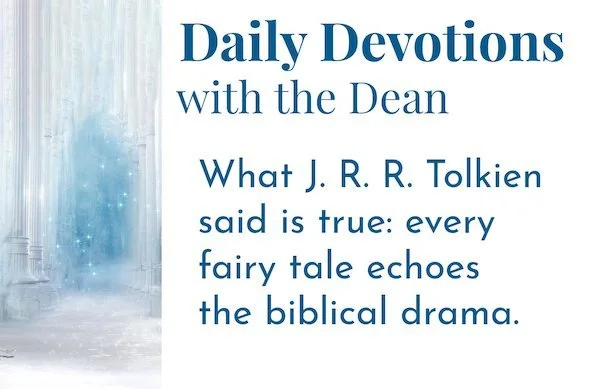Wednesday • 1/8/2025 •
We’ll be thinking through various facets of worship and how our Lord provides meaningful communion with him through our formal corporate worship as well as in individual worship in our daily devotions. The thoughts offered here are excerpts from articles I wrote for Worship Leader magazine a few years ago.
I Know Why the Prisoner Sings *
For two millennia, Christians have sung their theology—from catacombs to dorm rooms, and from cathedrals to football stadiums. Every distinctive shape the faith takes – each its own “Jesus Movement” – finds its own musical voice. Ambrose’s robust trinitarianism both created and was supported by the florid hymnody of the church of fourth-century Milan. Gregorian chant both bespoke a quest of a spiritual music for the church and announced the ascendancy of the medieval church. In the sixteenth century, Martin Luther trumpeted his newfound grace as much through broadsheets and hymns as through sermons and books.
Along the way, preachers and songsters have paired off, and sometimes the songsters have shaped the message as much as the preachers: John Calvin and Louis Bourgeois, John and Charles Wesley, Dwight Moody and Ira Sankey, Billy Graham and George Beverly Shea, Louie Giglio and Chris Tomlin. The evangelical uprising that began right after World War II, gained new life in the Jesus Movement of the 1960s, and persists into the beginning of the third millennium is characterized as much by its “praise and worship” as by anything else. When groups think about starting new churches, they are as anxious to establish their “sound” as they are their message.
Image: Pixabay
Hopeful Abandon
God is in the process of reclaiming our lost planet, so singing fits the way things are. As a result, Christians have been irrepressible singers from day one. What J. R. R. Tolkien said is true: every fairy tale echoes the biblical drama—we were lost, and then we were found. Praise and thanks come unbidden to the surface of our being—and in the unbiddenness of our singing lies its rightness.
A song will illustrate. One of my coworkers teases me: “I always know it’s you coming down the hall, because I hear the music first.” I am an incorrigible singer, hummer, and whistler. The one song that forces itself into my consciousness more than any other is this:
My life goes on in endless song, above earth’s lamentations.
I hear the real, though far-off hymn, that hails a new creation.
Above the tumult and the strife, I hear its music ringing.
It sounds an echo in my soul. How can I keep from singing?
When tyrants tremble, sick with fear, and hear their death-knell ringing,
When friends rejoice both far and near, how can I keep from singing?
In prison cell and dungeon vile our thoughts to them are winging.
When friends by shame are undefiled, how can I keep from singing?
What though my joys and comforts die, the Lord my Saviour liveth.
And though the darkness round me close, songs in the night he giveth.
No storm can shake my inmost calm while to that Rock I’m clinging.
Since Christ is Lord of heaven and earth, how can I keep from singing?
Anne Warner composed this folk hymn in the middle of a most uncivil Civil War, and Doris Plenn reshaped it during the Cold War and its attendant paranoia. It is a hymn of courage in the face of tempest and darkness and tyrants.
Trembling Courage
My absolute favorite version of the song is Eva Cassidy’s kicking “gospel” rendering. She sang it while she was trying to fight off the malignant melanoma that would eventually take her life. Perhaps that’s why she sings with an urgency most who take up this song don’t have. I know that there are different kinds of “prison cells” and “dungeons vile,” and that melanoma—which I too contracted—is one of them. I know therefore that the gift of a song in the night does keep the darkness back, if barely—“Dear God, do not let my children grow up without a father.” And I know that a response of unbidden song rings true because, and only because, Christ is indeed “Lord of heaven and earth.” I hope this was Eva Cassidy’s hope—it is mine, for though my cancer was found at a much earlier stage than hers and appears to have been treated successfully, I know that the “far-off hymn” isn’t as far off as it was pre-cancer. I know in a way I didn’t before that Christ’s victory over the grave promises “new creation.” More importantly, I know that in the worst of my fears I can’t keep from singing; Christ has plundered death and hell.
This hymn is a parable of the entire history of song in the church. It explains why we are such a singing lot. From the very beginning, God has been orchestrating a grand drama, the reclamation of his lost creation—and in operatic fashion, he has used the singing to his Jesus Movements to carry the story line.
Be blessed this day,
Reggie Kidd+
* Today’s post is adapted from Reggie M. Kidd, With One Voice: Discovering Christ’s Song in Our Worship (Grand Rapids, MI: BakerBooks, 2005), pp. 17–20.



